Sharuko on Saturday – The Brazilian ball boy, the ghost of Gambia and controversy

SO, where do we start in this pilgrimage into a fascinating world of controversy — a goal scored by a ball-boy in Brazil, another scored by a referee in Turkey or the one scored by a ghost in the Gambia in the 2005 CAF Under-17 Championships final?
Since we watch a lot of English football, maybe, we could start with the Three Lions.
Start with the argument that England’s sole World Cup triumph would not have happened had they not been major beneficiaries of that “Phantom Goal’’ by Geoff Hurst in the Wembley final in ’66.
Or, maybe, we could present the other flip side of that argument by suggesting England would certainly have been World Champions 20 years later, had they not fallen victims to Diego Maradona’s infamous “Hand of God’’ goal in Mexico.
What about questioning Uruguay’s success story as the first winners of the World Cup in 1930, given the toxicity that clouded their semi-final win over Yugoslavia — a victory only secured by a goal scored with the helping foot of a policeman?
With their semi-final against Yugoslavia tied at 1-1, the ball drifted out of play, but a Uruguayan policeman pushed it back onto the field with a flick, rolling it into the path of Peregino Anselmo, who raced clear to score and push the hosts into a 2-1 lead.
“The ball had appeared to go out of play, only to be kicked discreetly back onto the pitch by a uniformed policeman,” the authoritative “Compact Book of The World Cup,’’ says of that incident.
To their credit, the Yugoslavia players refused to be shattered by all this farce and, even scored again, which should have tied the score at 2-2 and opened the game once more.
But, their effort was controversially ruled out and Uruguay took full advantage and added four more goals without reply for a 6-1 win and a place in the final where they beat Argentina 4-2 in Montevideo to become the first World Cup winners. There have been some bizarre events in this game, like that infamous Turkish league match in 1986 between Ankaragucu, a club Norman Mapeza would play for in the ’90s, and giants Besiktas, which the former won 1-0.
A penalty was awarded to Ankaragucu in the closing stages of that match in September 1986, and the Besiktas goalkeeper blocked the fierce shot. The ball flew straight to the referee who was standing in the penalty area, struck him and rebounded off his head and straight back into goal.
The referee, Ahmet Akcay, gave the goal, arguing the rules were very clear he was part of the play.
“This is the first time in my 17 years in football that I’ve scored a goal,’’ the referee later told Milliyet newspaper. “My conscience is clear.’’
Poor Besiktas were left to reflect on that loss as they eventually finished just a point behind eventual champions Galatasaray, even though their superior goal difference would have made them champions had that referee’s goal at Ankaragucu not stood and, instead of nothing, they had taken a point from that game. But, incredibly, Akcay isn’t the only referee who has done this — in Dagestan, a Russian federal subject in the North Caucasus region, a goalkeeper also blocked a penalty and the rebound flew straight to the referee, who could not avoid it, hit the match official and rebounded back into goal.
The referee allowed the goal to stand and the match between Keye DD and Manas ended in a 4-4 draw in September last year and the video has been circulating widely on line and major international newspapers have captured that bizarre moment.
THE BRAZILIAN BALL BOY, THE GHOST OF GAMBIA AND CONTROVERSY
In September 2006, television pictures emerged showing a Brazilian ball boy scoring for one of the teams. Santacruzense were trailing 0-1 with a minute of regulation time left when a ball boy scored for them to snatch a 1-1 draw against Atletico Sorocaba in a Paulista Football Federation Cup match in the state of Sao Paulo.
An attack by the home team ended with a Santacruzense player shooting narrowly wide.
The ball boy collected the ball with his feet, pushed it back onto the pitch and struck it into the net. Referee Silvia Regina de Oliveira, who had officiated in the Brazilian top-flight and the regional Copa Sudamericana, South American football’s version of the CAF Confederation Cup, awarded the goal despite furious protests from the Sorocaba players, and the match ended in a 1-1 draw.
But, before we condemn the Brazilians, let’s look at the events closer to home and how can we forget that the final of the 2005 CAF Under-17 Championships between the hosts and Ghana in Banjul, Gambia, was decided by a bizarre goal scored by a ghost. The match had been tied, when in the 87th minute, Gambian winger Momodou Ceesay beat Jerry Akamiko of Ghana and delivered a cross into the box. Jallow Ousman’s connection was drifting wide, but a darkish man-like feature came from nowhere and redirected the ball home. And, just like that, it disappeared.
Some claim a fan burst onto the field and did the scoring, but a review of the images of that goal, which are available on the Internet and which have been discussed by many experts, don’t seem to support such a view.
“We were cheated because the Gambian goal was not a real goal,’’ Ghanaian coach David Duncan told the media after that match.
“It’s not good for African football.’’
Six years ago, one of the world’s best referees Felix Brych, who has handled the UEFA Champions League and Europa League finals and officiated at the World Cup finals, was at the centre of a storm when he allowed a ghost goal in a Bundesliga match between Knowledge Musona’s former team Hoffenheim and Bayer Leverkusen.
Stefan Kiessling’s effort went through a hole in the side-netting to give Leverkusen a 2-1 win and the German FA’s tribunal threw out an appeal by Hoffenheim and ruled that the result should stand.
BAMALA’S PANTOMIME SHOW SPOILED A GREAT AFTERNOON
The Battle of the Cities between Highlanders and CAPS United has always been one of the premier contests in the domestic Premiership and, 15 years ago, this epic contest produced a three-hour classic, played in the City of Kings and the Sunshine City, which touched the heavens. Sunday’s duel might not have produced a classic — but it was a fine full-bloodied fight — Prince Dube’s battle with the post in the first half, which the upright kept winning, provided some of the highlights.
The Green Machine’s stunning transformation after the break, from a team that had been pummelled close to submission into one that dominated the second period, was yet another expression of their strength.
Then, just like that, referee Thabani Bamala decided to take over the show, transform the narrative and ensure the beast of his poor performance, and not the beauty — of a fine duel between two giants who gave it their all — would dominate the headlines.
Kudzi Nyamupfukudza should have been sent off for two bookable offences, but was, somehow, left to complete the game.
Gabriel Nyoni and Peter Muduhwa should both have been sent off for their altercation, but they were both left to complete the match.
He appeared, in my humble opinion, to get the decision right not to award a penalty when Valentine Ndaba went down under a challenge in the penalty area, — but from the angle we have reviewed again and again, his call to deny CAPS United a last-gasp goal appeared wrong and diabolical.
Godwin Goliath is clearly alone when the ball is punched back into play by Ariel Sibanda, but that shouldn’t make him offside because the question about whether he was offside, or not, should have been determined from where he was when the ball left the boot of midfielder Joel Ngodzo. From the footage we have reviewed all week, Goliath appeared onside when the ball left Ngodzo’s boot and that should have ensured his goal was legitimate.
Refereeing mistakes happen in football, only on Wednesday, in the Champions League quarter-final at Old Trafford, we all saw an assistant referee raise his flag to disallow Barcelona’s goal, only for the VAR to correctly rule that the goal was, in fact, a genuine one.
Had VAR not been in use, as was the case at Barbourfields last Sunday, it’s very likely the Barca goal would have been lost in the haze of a mistake by the assistant referee.
We also saw the referee on Tuesday needing VAR help to give Manchester City a penalty against Tottenham and we saw Chelsea get an equaliser from an offside position in a league match against Cardiff recently, while the Citizens won an FA Cup at Swansea, thanks to a goal scored from an offside position.
But, there is something wrong though with a system that appoints Bamala to handle a CAPS United game in Bulawayo, when just a few years ago, the Green Machine officially wrote a protest to ZIFA and the PSL questioning why the same referee had been assigned to handle three straight matches for them in the City of Kings that season.
The same referee, whom Leonard Tsipa publicly complained about, saying he kept ignoring his pleas that he was being handed a rough treatment in the Battle of the Cities three years ago, before the striker was sent off in that match at Barbourfields after he lost his cool and head-butted Muduhwa, will always be a questionable choice for such games.
And, when he goes on to disallow an effort by Makepekepe in such a match, as was the case on Sunday, where there is a streak of both madness and evil in his diabolical call, it certainly leaves room for people to speculate and even, as has been the case this week, condemn him for bias.
When another referee Bekezela Makeke leaves his seat as the fourth official and bursts onto the pitch, as was the case in July 2003, and orders the referee to overturn his decision to award a penalty to CAPS United in another Battle of the Cities at Barbourfields, one can understand when the Makepekepe fans cry foul.
WHAT GOES AROUND ALSO COMES AROUND IN THIS GAME
But, while CAPS concerns appear genuine, it’s also important that they also remember the occasions when other teams cried foul when decisions by referees, also went in their favour and, as was the case in June 2016, Bulawayo City left the National Sports Stadium an unhappy lot after a 1-2 defeat.
Xolisani Moyo’s 65th minute effort was somehow ruled out and made the difference between getting three points and a point for the Green Machine in a season, when if they had drawn that game, CAPS and FC Platinum would have ended with the same number of points (61).
And, FC Platinum would have won the championship race because of a superior goal difference — (+23) for the Zvishavane side and (+20) for Makepekepe.
“We lost not to a better team. We played very well,’’ said the then Bulawayo City coach, Philani Ncube. “We conceded the second goal, but from my point of view, I thought it should have been a goal kick, but the only person with the final decision is the referee.
“When it was 2-0, we scored a goal, what I thought was a genuine goal in my own assessment, but then the first assistant referee said it wasn’t a goal.’’
Two months later, Tsholotsho also left the giant stadium crying foul after a match against the Green Machine. Dennis Dauda’s handball inside the penalty area was the big talking point, with assistant referee Melody Ncube raising her flag indicating the foul, and penalty, but referee Thomas Masaa decided otherwise.
“It could have been the turning point for us, but referees are human beings too that make mistakes,” said Tsholotsho assistant coach Xolani Mafikeni after that match.
These are just two incidents, which could have defined the CAPS United season three years ago, and made a difference between them being champions or runners-up, with both going in their favour. That’s the way this game is, as much as it hurts to say so.
To God Be The Glory!
Come on Warriors!!!!!!!!!!!!!!!!!!!!!!!!!
Khamaldinhoooooooooooooooooooo!
Text Feedback — 0772545199
WhatsApp — 0772545199
Email — [email protected]; [email protected]
You can also interact with me on Twitter — @Chakariboy, Facebook, Instagram — sharukor and interact with me every Wednesday night, at 9.45pm, when I join the legendary Charles “CNN’’ Mabika and producer Craig “Master Craig’’ Katsande on the television magazine programme, Game Plan.



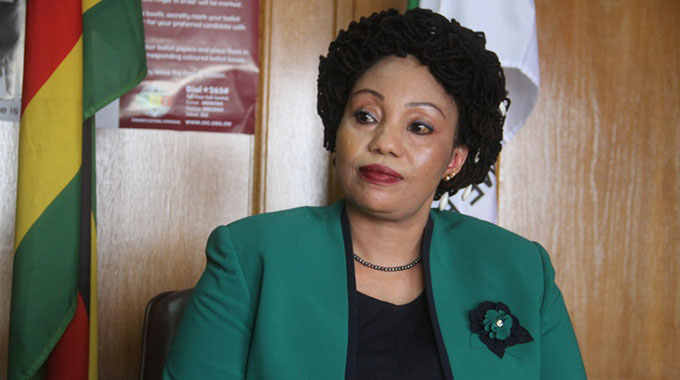
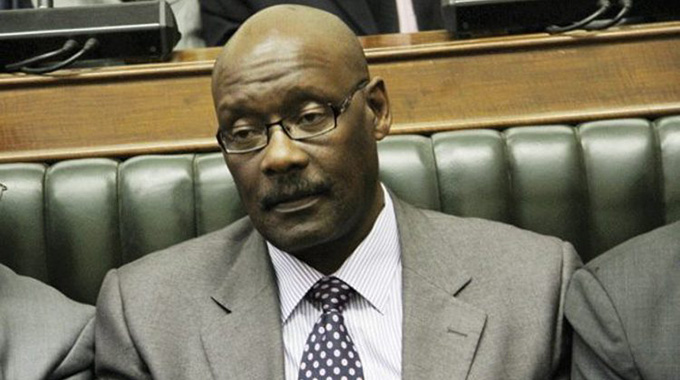
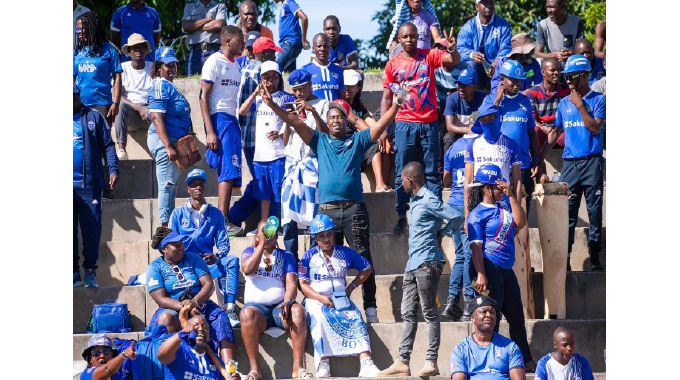
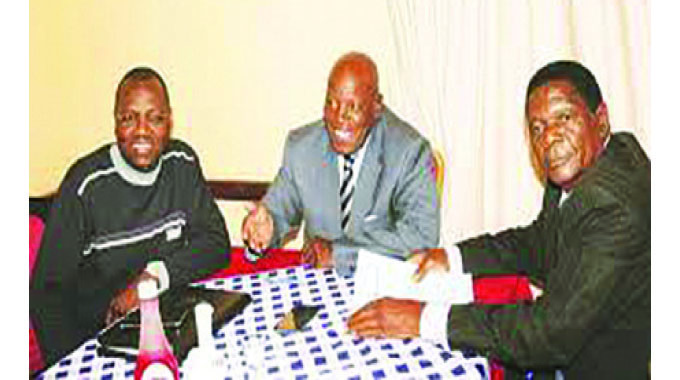
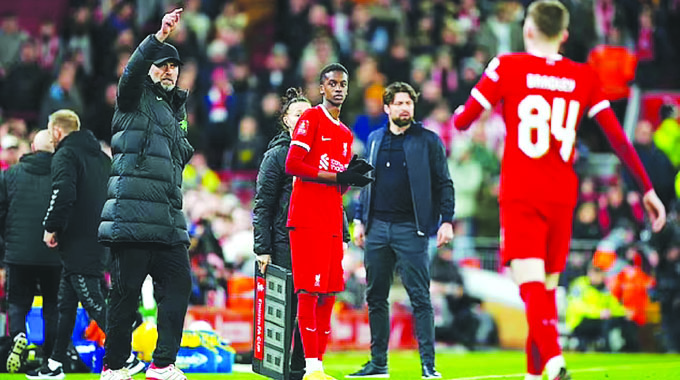

Comments